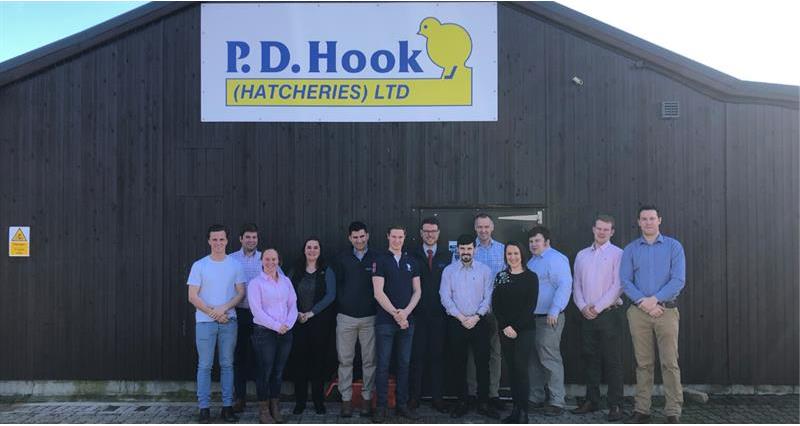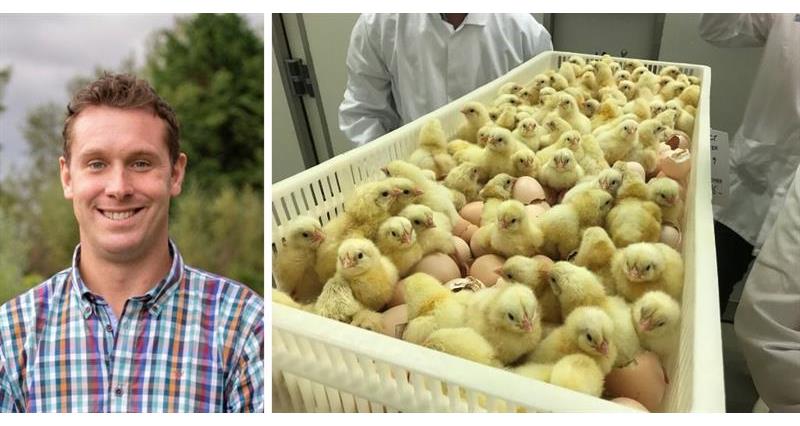On arrival we were greeted by Patrick and the hatchery manager Carlos, before listening to a presentation outlining how P.D Hook has grown from its humble beginnings in the 1950’s. P.D Hook began by hatching chicks to supply local demand from a garage on the existing site and is now one of the largest independent hatchery companies in the UK. It boasts eight hatcheries across the country supplying a staggering 10 million day-old chicks a week!
The tour itself started off in the egg room. Here eggs are stored and disinfected before going onto the hatching process. Each egg is also manually inspected and individually marked on farm to ensure total traceability throughout the entire process. This is no mean feat given that the room can store up to four million eggs at any time.
After inspection, the eggs are moved to the setters where they are stored at 37.4°C for the next 18 days. In order to aid the hatching performance and chick quality, the eggs are turned once an hour for the duration they are in the setters and a constant humidity is maintained.
During the final three days before hatching the eggs are placed into hatching boxes and stacked into the incubators. Once hatched, each chick in the P.D. Hook hatcheries is then graded by hand. After grading, the chicks are individually counted by passing through an automated laser; boxed and spray vaccinated before making their way to the farms.
Following the tour Patrick and Carlos held a question and answer session which touched on lots of topics but I was particularly interested to learn about uniformity, chick quality and hatchability. P.D. Hook are uniquely placed to achieve a high degree of chick uniformity because 90% of their hatching eggs come from their own breeder farms and they rear their own breeders. In addition, each bird is weighed by hand on a weekly basis and then fed accordingly (giving a uniform breeding flock at point of lay).

Maintaining and improving chick quality is high on P.D. Hook’s agenda. The business has invested heavily in vaccination programmes on its rearing and breeding farms to ensure the best quality day old chicks and has future plans to further improve chick quality. These plans include the phasing out of night-time hatching at Dalton and Gunness to allow chicks to be delivered to farms on the day of hatching, as well as ongoing and future large-scale refurbishments at many of the other hatcheries and farms.
Since the establishment of Hook2Sisters in 2006, P.D. Hook is not satisfied with relying solely on traditional hatchability and seven day mortality quality measurement standards and is therefore beginning to focus on bird performance throughout the growing process. In particular, the joint venture is looking at how small changes within the hatching process can greatly affect the end product. This focus on bird performance will hopefully not only benefit P.D. Hook but the industry as a whole.
